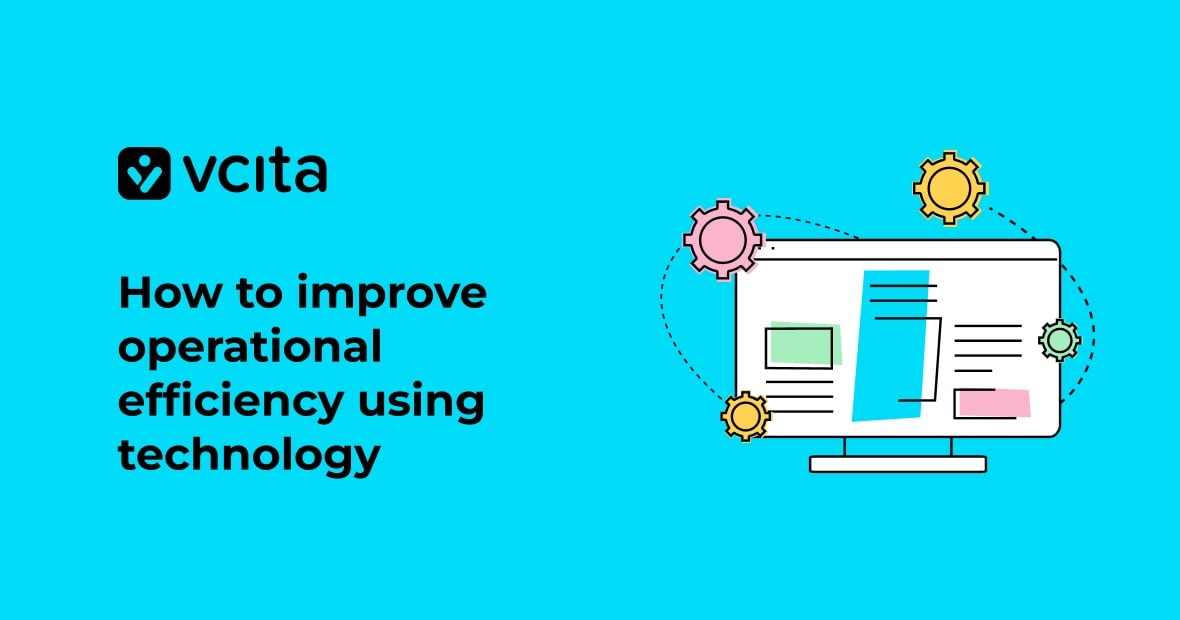Starting an event planning business can be an exciting and rewarding venture if you go in with the right mindset and skills. The events industry is booming, which is great news for small businesses, especially in niche areas like weddings, corporate events, or kid’s parties.
But before you dive in and start your own event planning service, you need to do some serious planning of your own. This includes identifying your target market, deciding which types of events you want to focus on, and preparing marketing materials to spread the word about your new business.
Before you start to feel overwhelmed, don’t worry. We’re here to help make your event planning business a reality. Read on to learn how to start an event planning business, find your niche, build a solid plan, and execute successful events that will have your clients singing your praises.
Identify your ideal clients using market research
Just like any successful service business, you need to know who your target clients are before you begin your event planning business. This requires conducting market research. Here are the steps to take to discover and understand your ideal customers.
Analyze your local market
Talk to people in your neighborhood and look at social media profiles to see what kinds of events are popular in your area. Are there a lot of weddings, corporate events, or children’s parties? Check with venues, caterers and photographers to get a sense of what’s trending, so you can look for gaps in the market that your business could fill.
Define your target audience
Think about whether you want to focus on individuals planning social events, or businesses organizing corporate functions. Determine the key characteristics of potential clients like age, income level, company size or event type preferences. For example, you might target small businesses planning team-building events, or working parents planning children’s parties.
Survey potential clients
Once you know which customers you’ll target, create a survey asking them what kinds of events they plan and what services they need help with. Ask if they’ve worked with event planners before and what they valued about the experience, and look for common themes in the responses to shape your service offerings.
Research the competition
See what other event planning businesses offer and how they market their services. Note the ways that they succeed in satisfying their clients, as well as ways to differentiate yourself and offer even higher customer satisfaction. Use this information to refine your target market and build a competitive advantage.
Determine your niche
You don’t have to be all things to all people. Choosing a niche helps focus your marketing and build expertise that sets you apart, so choose one type of events like social events, corporate retreats, fundraisers, or wedding planning. Become an expert in planning one type of event before expanding into other areas.
Plan corporate events
For corporate events, you can provide full-service planning for conferences, product launches, holiday parties and more. Do market research to find potential clients in your area that need help organizing business functions. Create marketing materials touting your event planning expertise and services for companies, and build a professional website to help establish your business.
Wedding planning
Wedding planning is also a popular niche. As a wedding planner, you’ll guide couples through the entire wedding planning process, from venue selection to final details, so it requires the ability to handle emotional clients. Focus on design and decor to create beautiful and memorable weddings, and develop a portfolio of photos from successful events you’ve planned to show potential clients. Market your wedding planning services through wedding vendor networks, social media, and wedding expos.
Social events
You may also want to offer planning services for social engagements like birthdays, anniversaries or fundraising galas. An event planner provides budget management, finds venues, coordinates with vendors and plans programs. Do research on your local events industry and small businesses that may need event planning help, and reach out to them with details on your services.
Create a business plan for your event planning startup
Once you identify your target market and decide on your niche, you’re ready to build a business plan to map out how you’ll succeed. An effective business plan helps you define your goals and the steps needed to achieve them, helping you remain focused on your goals.
First, outline your mission and vision, target market, and the services you’ll offer. Conduct market research to determine demand and competition, and set realistic financial projections to ensure you have a sustainable business model.
Your plan should map out operational details like business structure, marketing, and staffing needs. Take time to craft a comprehensive plan that proves you understand the events industry and have a path to thrive in it, because a business plan is also crucial for obtaining funding or loans to start your business.
Build your brand identity and marketing materials
Now you’re ready to establish your brand identity and develop marketing materials that showcase your passion and experience.
-
Set Yourself Apart
Determine what makes you different from other planners, and highlight your uniqueness on your website and marketing materials. Maybe you have experience organizing eco-friendly events or cultural celebrations. Becoming known for a niche expertise is a great way for new event planners to find success.
-
Establish your brand
Come up with a memorable business name and logo that conveys your style and expertise. For event planners, something creative yet professional works well. Build a website to establish your online presence and allow potential clients to learn about your services. Include details about your experience, photos of successful events you’ve organized, testimonials from happy clients, and your contact information.
-
Develop marketing materials
Produce marketing materials like business cards, flyers, email templates, and presentations that all use the same logo, color scheme, and tone, to strengthen your brand. Offer promotional giveaways with your logo that people will actually use, like pens, notebooks or phone chargers, to help keep your business top of mind.
-
Forge networking connections
Start networking by joining your local chamber of commerce and event professionals associations, and sponsor related charity events or local business mixers to increase brand visibility. It’s also valuable to build your online presence on wedding and event planning platforms, and share photos of successful events on social media.
Prepare your portfolio
Build a portfolio of successful events you’ve organized. This establishes credibility and gives potential clients an idea of your planning skills and style. Outline the planning services you offer for different types of events. For example, if you specialize in weddings, promote packages for full wedding planning as well as day-of coordination. For corporate events, focus on meetings, conferences, product launches, and team-building activities.
Connect with potential clients
Once you’ve identified your target market and the events you want to focus on, it’s time to start promoting your new event planning business and reaching potential clients.
Create a professional network
Networking is key for any small business, and the events industry is no exception. Attend industry meetups, join your local chamber of commerce, and get to know others in complementary fields like catering, venue management, or floral design. Build genuine connections and look for opportunities to collaborate. People will be more inclined to refer to you more clients if they know and trust you.
Make use of existing connections
Leverage your personal network as well. Reach out to friends, family, former colleagues, and past clients to let them know you’ve started your own event planning company, and ask if they’d be willing to spread the word or provide a testimonial for your marketing materials. Referrals and word-of-mouth are excellent ways to find new clients.
Build a professional website
A professional website is the best way to outline your services, share photos of successful events you’ve planned, and promote glowing reviews from happy clients. Include all the details about which area you cover, types of events you prepare, and your pricing, and an online booking widget to make it easy for clients to book a consultation with you.
Maximize social media
Social media is a must for promoting your business and showcasing your skills. Create business profiles on LinkedIn, Facebook, and Instagram and post regularly about trends in the events industry, behind-the-scenes photos of events you’re working on, and tips for hosting a memorable get-together. Moreover, as we prioritize maintaining an optimized online presence, we leverage VPS hosting for SEO to ensure that our website remains accessible, fast-loading, and search engine-friendly, contributing to enhanced visibility and user experience. Engage with your followers and be active in relevant Facebook Groups and LinkedIn discussions.
Promote your services
Don’t be afraid to pitch your services to potential clients, whether corporate event planners, wedding coordinators, or individuals looking to throw a special party. Reach out via email or phone and suggest an initial consultation where you can discuss their needs and propose some creative ideas. Come prepared with examples of relevant events you’ve organized in the past. While rejection is part of the process, staying proactive and persistent will pay off in securing new clients and helping your business take off.
Your event planning business is on its way
With hard work and dedication, you can build a successful event planning company. Identify your niche, spread the word, and reach out to potential clients. While it may take time, if you network, leverage your connections, and promote your services through social media and your website, you’ll gain valuable experience and see your business grow.




























